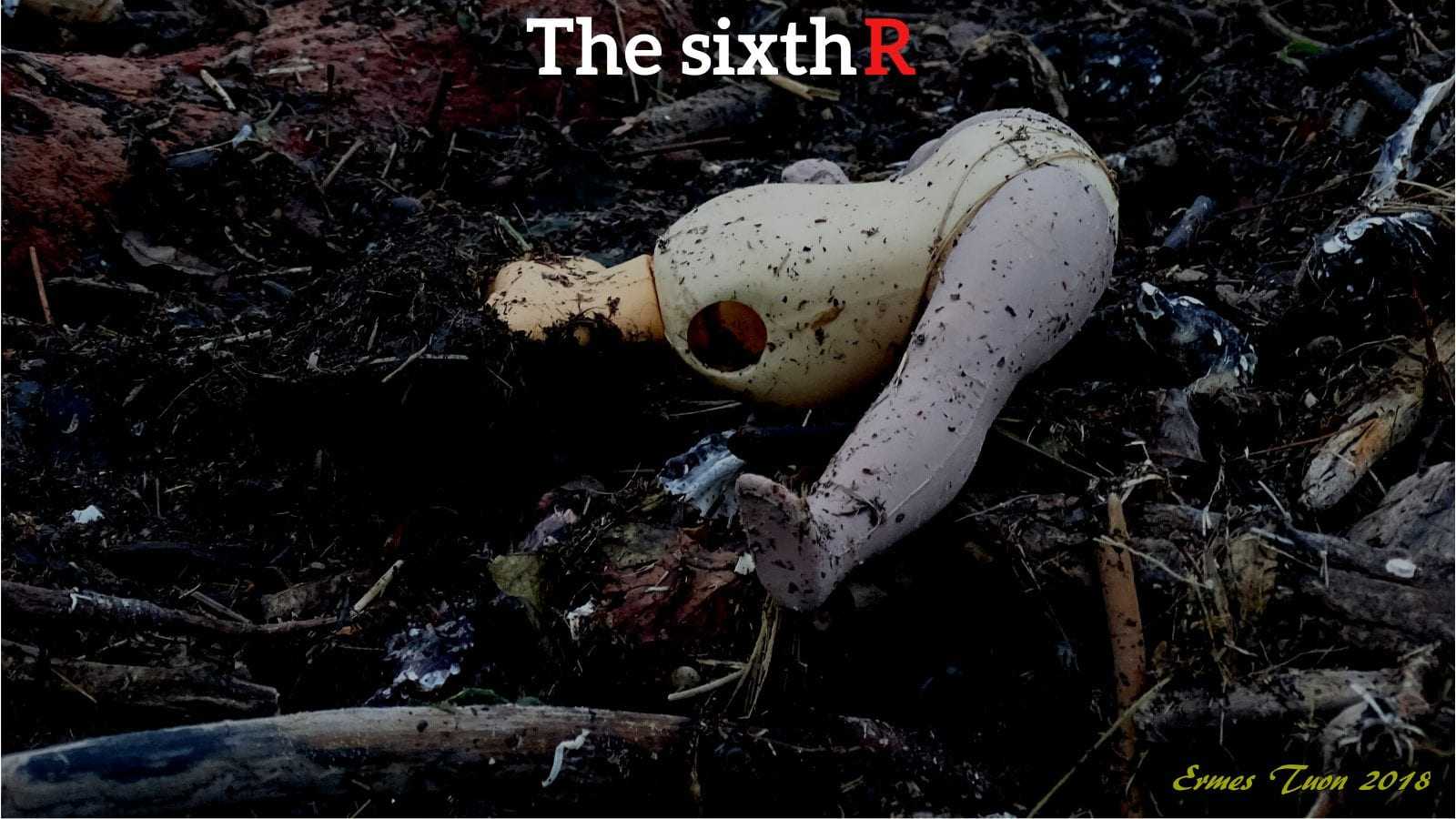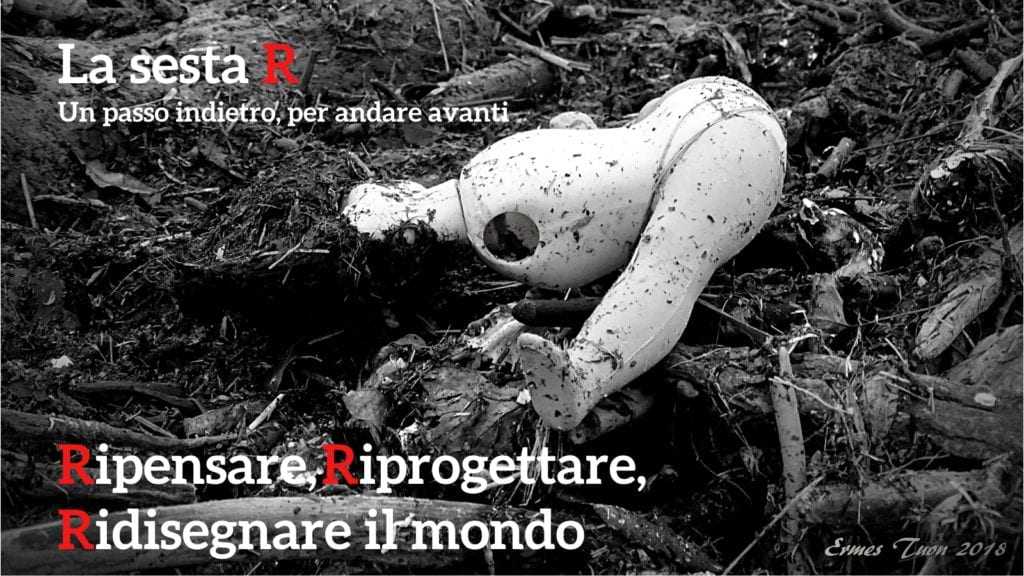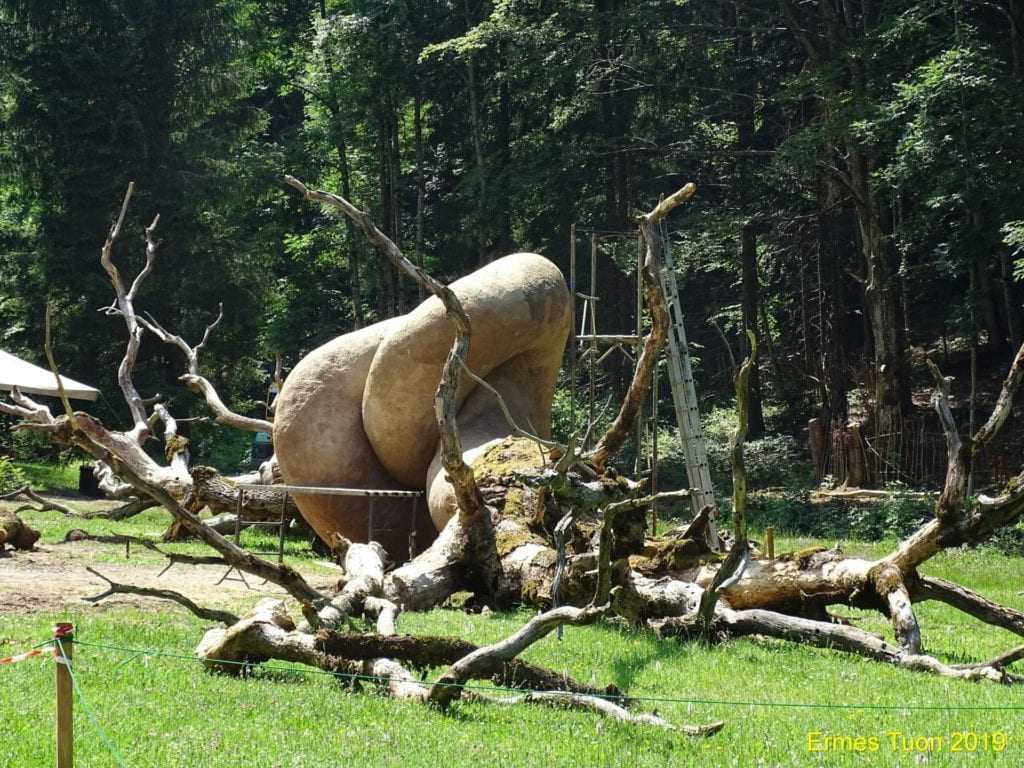At the beginning there were 3 of them. The three Rs that represented the cardinal principles of respect for the environment:
Reduce the amount of waste you produce. A recognition of the difficulty of a world without waste, but certainly the key principle to start managing the next steps.
Reuse for a different purpose what you already have and that is no longer useful for the initial purpose. An extension of the life of what you have. Give or exchange what you no longer need, but which can serve others
Recycle everything that you can’t reuse, through waste sorting and composting
By increasing the awareness, two more Rs have been introduced. The change of principle is clear, as the new concepts have an important potential impact on the market, and therefore on the world economy.
Recover / Repair. Almost an extension of Reuse / Recycle, with the awareness that our planet is not a world of “endless resources“, and that the concept of “throw it away and buy one again, it costs less than repairing it” is not feasible endlessly. Just think about how many printers you have changed.
Refuse purchasing products that do not have the possibility of being reused / repaired. The refusal is destined to become the cardinal rule, the first on the list, the one that can actually change the way of conceiving the production of goods, but …
Awareness versus price
…. What about the collision course of awareness with a very powerful variable: price? Buying disposable products is good for the economy, disposable products are cheap, they are always new and above all they make industry work, and with the industry they make us work.
Faced with this, our awareness fades, personal responsibility is replaced by a more generalist concept that assigns to someone else (governments, institutions, scientists) the role decision makers, transforming us from actors of a change to passive spectators of the choices of others.
A step back
We must take a step back, to understand this concept, and understand what we did wrong.
In the 60s and 70s, the years of the economic boom, the orientation was directed to the production of consumer goods accessible to all. A house for everyone, with bathroom, heating, appliances. A car for everyone, finally free to move and travel. It is obvious, nowadays, but not when the consumption spiral began.
Energy. We needed a lot of energy, but access to fossil fuels made it cheap, easy to have. Plastic seemed a democratic way of producing durable, low-cost goods, and the pollution was an acceptable price to pay.
Today we know that this was not the case and that the reckless use of energy – an energy that the first countries of the world use in an extreme way and that emerging countries want to be able to use in the same way – has shifted the heat balance of the planet, and did it in a much faster way than expected. The basic problem, which is often diverted to “secondary” problems, is that at this moment, with the reduction of those natural mirrors that are glaciers, our planet reflects much less solar energy than in the past, and therefore heats up faster. and faster, making the thought of “stopping” the current energy consumption almost pathetic.
It is no longer a problem of “energy resources”, the point is that the use of those resources will have to be reduced dramatically, in order to imagine to try to slow down the global warming.
A new way of thinking. The sixth R
It is no longer just a question of reducing energy consumption, it is a matter of Rethinking and Redesigning a way of life, giving it a shape that we cannot even imagine at the moment. It is the sixth R.
The idea that we can “maintain the status quo” in a “more environmentally friendly” way is a contradiction in terms, which will not lead us anywhere. Of course, thinking about “green” is important, doing our part is important, because it increases awareness, but “getting the right conscience” will not get us anywhere unless we start thinking that our life will have to change radically. Our life will change anyway, whether we like it or not.
Give up all hope …? Absolutely not. Abandon the technology? Not even. It will be the technology, in the hands of less conditioned minds of ours, the hope of an evolution of our way of life.
A different way of living, which I’m not able to tell. For now I can only imagine ….


